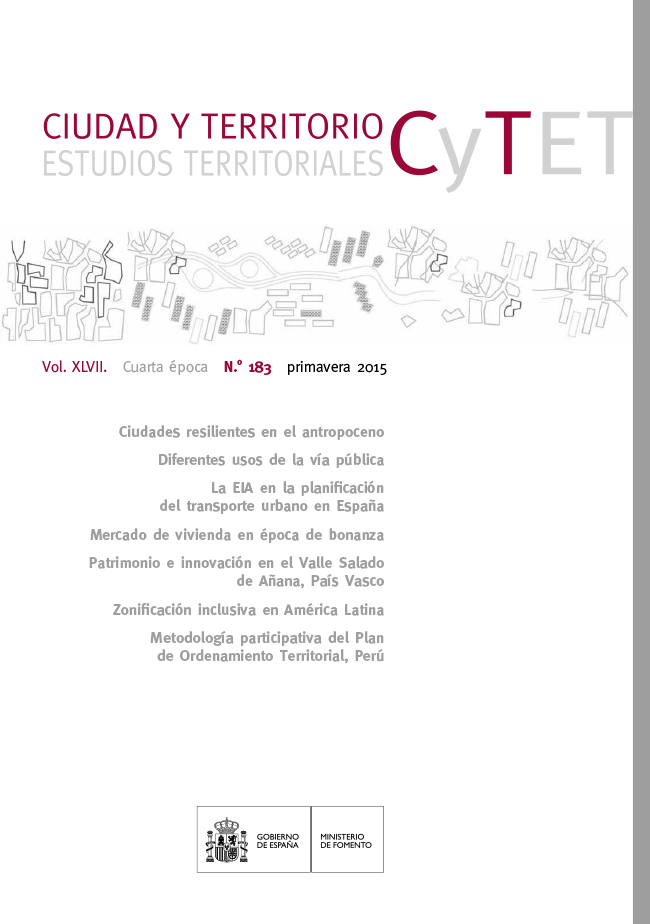Effectiveness of EIAs in urban transport planning in Spain: implementation barriers by professional profiles
Keywords:
Sustainability, mobility, land use planning, transportAbstract
In recent years the effectiveness of environmental impact assessments (EIAs) in projects
related to urban-transport planning has increasingly been questioned by professionals, institutions
and academics. To mollify this, more attention has traditionally been paid in the scientific literature
to solving methodological or content issues in EIAs than any problems related to the actual process
of implementation and their role in decision-making. However, it makes little sense to think that
only through technical improvements to EIAs will we be able to increase their effectiveness in the
field of urban transport.
With a view to exploring this issue in more depth, this paper examines how EIAs are implemented
in the day-to-day planning of urban transport in Spain. Thus, an attempt is made to learn more
about problems related to their actual implementation process. Although the actors involved in EIAs
are many and varied, this paper focuses particularly on analysing any implementation problems
that may exist between the two dominant professional groups: environmental consultants and
transport planners. By means of a questionnaire, the nature and importance of these EIAimplementation
problems will be estimated with a view to enhancing their effectiveness.
Downloads
Downloads
Published
How to Cite
Issue
Section
License
Copyright (c) 2015 Julio A. Soria-Lara

This work is licensed under a Creative Commons Attribution-NonCommercial-NoDerivatives 4.0 International License.
Considering the provisions of the current legislation on Intellectual Property, and in accordance with them, all authors publishing in CyTET give -in a non-exclusive way and without time limit- to the Ministry of Transport, Mobility and Urban Agenda the rights to disseminate, reproduce, communicate and distribute in any current or future format, on paper or electronic, the original or derived version of their work under a Creative Commons Attribution-NonCommercial-NoDerivative 4.0 license International (CC BY-NC-ND 4.0), as well as to include or assign to third parties the inclusion of its content in national and international indexes, repositories and databases, with reference and recognition in any case of its authorship.
In addition, when sending the work, the author(s) declares that it is an original work in which the sources that have been used are recognized, committing to respect the scientific evidence, to no longer modify the original data and to verify or refute its hypothesis. Author(s) also declare that the essential content of the work has not been previously published nor will it be published in any other publication while it is under evaluation by CyTET; and that it has not been simultaneously sent to another journal.
Authors must sign a Transfer of Rights Form, which will be sent to them from the CyTET Secretariat once the article is accepted for publication.
With the aim of promoting the dissemination of knowledge, CyTET joins the Open Journal Access (OA) movement and delivers all of its content to various national and international indexes, repositories and databases under this protocol; therefore, the submission of a work to be published in the journal presupposes the explicit acceptance by the author of this distribution method.
Authors are encouraged to reproduce and host their work published in CyTET in institutional repositories, web pages, etc. with the intention of contributing to the improvement of the transfer of knowledge and the citation of said works.








 Enlace a CyTET en Linkedin
Enlace a CyTET en Linkedin